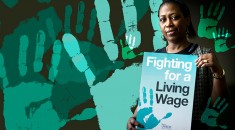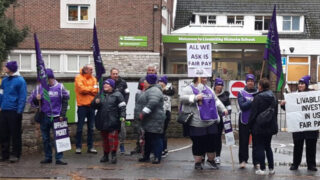Karen Debouza recalls the first time she walked into the Brent food bank, in northwest London, with a voucher in her hand that would get her enough to eat for the next three days.
“I just broke down in tears,” she says, the hurt and bafflement of that day still etched on her face. “I thought, has it come to this? Why am I here? Why?”
That question is undoubtedly in the minds of hundreds of thousands of people today, as Victorian levels of poverty drive them towards food banks.
Karen (below) had been receiving Employment and Support Allowance, the benefit for people unable to work due to illness or disability, when she missed a medical and was suddenly deemed “fit to work”. The benefit office ignored her doctor’s notes to the contrary. And her payments were immediately stopped.

“At first I didn’t know who to turn to. I was living on scraps and hand-outs,” this shy, diminutive woman recalls. “It was nearly three months before I found out about the food bank, which was a life saver. They helped me with my food and electric, but also gave me companionship and support.
“It was upsetting, that first time. But it was also a relief, to have somewhere to come and get everything sorted out. It stopped me from sinking into a deeper depression. It got me back on track.”
UNISON general secretary Dave Prentis has called the rise of food banks “the tip of the iceberg” of a poverty crisis that is afflicting 13 million people in the UK.
Brent is one of a network of 421 food banks and 1,376 distribution centres coordinated by poverty charity The Trussell Trust, which is currently giving more food to people in crisis than ever before in its 12-year history.
Between April and September last year Trussell distributed more than half a million emergency food parcels – including over 188,000 to children.
Karen’s particular predicament has become widespread. The trust’s figures show that delays and changes to benefits account for 44% of all referrals to its food banks.
After benefits problems, low income is the second largest cause of emergency need, accounting for nearly one in four of all referrals.
And UNISON’s own members are among that growing number of ‘working poor’ who are also becoming dependent on food banks – just one reason why the union is committed to campaigning for decent rises in take-home pay across its services, and for the living wage.
“Our members face impossible choices,” says Jane Carolan, chair of the NEC Policy and Campaigns committee. “They work. But pay freezes and rising bills on food, transport and heating mean that work fails to provide sufficient income.
“It is disgraceful when this means that working families are forced to food banks.”
The very location of the Brent food bank, in one of the capital’s most deprived boroughs, is a chastening reminder of that fine line between comfort and poverty.
Turn left from Neasden underground station and a short walk takes you to one of IKEA’s giant warehouse stores, a destination for proud homeowners from all over the city. Turn right, and you’ll reach a nondescript building next to a churchyard, where the starving come in search of food.
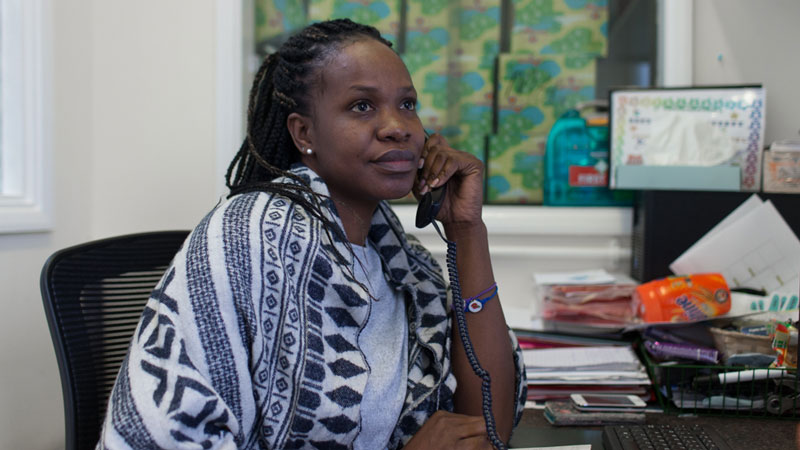
“A lot of people might know that food banks exist, but I don’t think they fully understand what people are having to live through every single day in this country,” says Brent’s manager, Michele Lawrence (above).
“We have mothers who are skipping meals to make sure their children eat. We know parents who take their children to school, then just walk the streets until they pick them back up, because they’ve got one or two pounds on an electricity meter and want to save that for when the children come home.
“One lady came to us in winter, literally shaking, and stood by the heater for the whole three-hour session, drinking tea, just to keep warm. She said she’d had no heating for three months, and sat in her front room with her blow heater until the electricity ran out. Then she would just cover herself with quilts.”
In fact, just a few hours at Brent opens a window to the scale and variety of suffering in the UK today. Anstel is struggling to make his jobseekers allowance stretch to bills, food and the costs of looking for work. Trevor says he is suffering from schizophrenia but, like Karen, has been deemed fit for work and denied ESA. When he collapsed with hunger, his church gave him food before sending him to the food bank.
Trussell’s London food bank network manager, Sarah Greenwood, ruefully observes: “There is no bottom to this pit. All our food banks can offer is a stopgap, some time in which our clients don’t have to worry about where their next meal is coming from, and instead can try to make a rational decision about what they do next.”
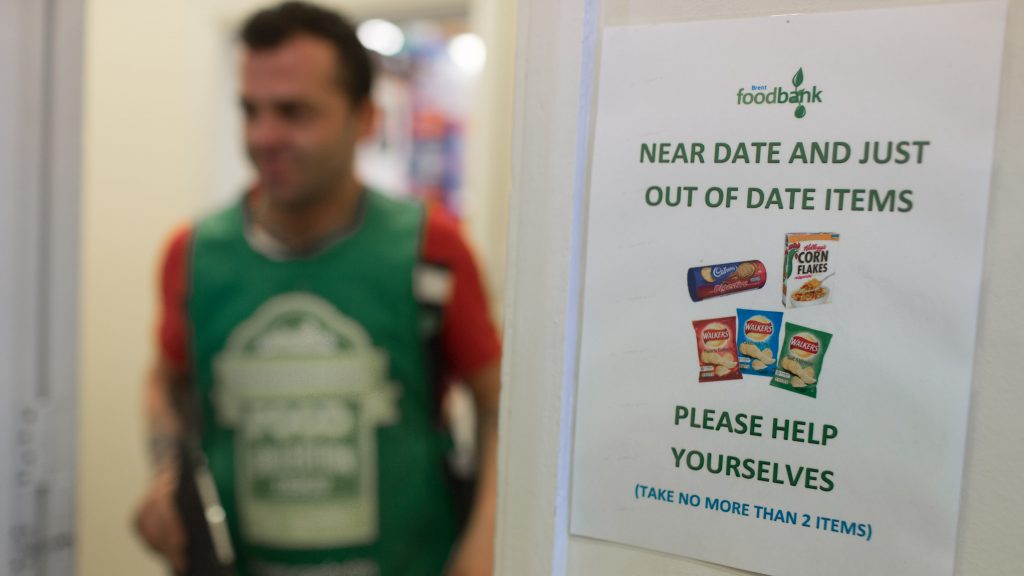
While there are many independent food banks around the country, the trust is a social franchise that offers a specific model of operation. Care professionals – doctors, health visitors, school staff, social workers – identify people in crisis and issue them with a food bank voucher. Each voucher entitles a person to a parcel of three days’ nutritionally balanced, non-perishable food, for themselves and their dependents.
An individual can receive three vouchers in a six-month period, after which the referral agency has to speak to the food bank manager and convince them they are doing all that is possible to resolve the person’s situation.
“We’re quite keen not to build up dependency,” says Michele. “We don’t want people to become reliant on the food bank service, because it is an emergency service.”
She also speaks to every one of the clients, assessing what help they need beyond the immediate food parcel. Brent offers legal advice from local solicitors, and runs a fuel bank service. And Michele has forged connections with a network of other organisations and charities.
At the same time, she praises the local people who constantly donate the food and other products that make the initiative possible. “This is a service by the community for the community. It’s amazing how many people want to do something to help. They just need to know how.”
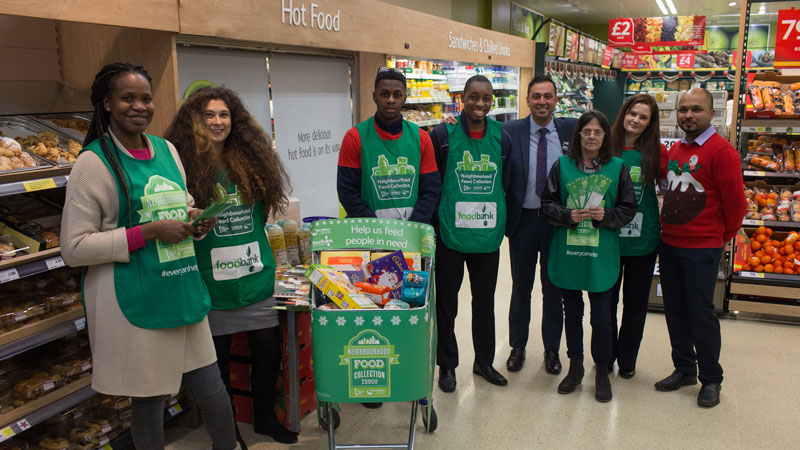
Her volunteers come from all directions – university students on their break, unemployed people using their enforced free time for good, and sometimes employed people, like newbie Juanita, who works for a children’s centre, has a young child, but was keen to add voluntary work to her busy schedule.
And then there are the former clients, such as Beni, and Karen herself, who want to take their turn to help others.
“I will do as much as I can, to give something back,” she says, “because in a way the food bank saved my life.”
UNISON’s charity There for You offers members one-off emergency help with food and fuel: www.unison.org.uk/thereforyoum or 020 7121 5620.


